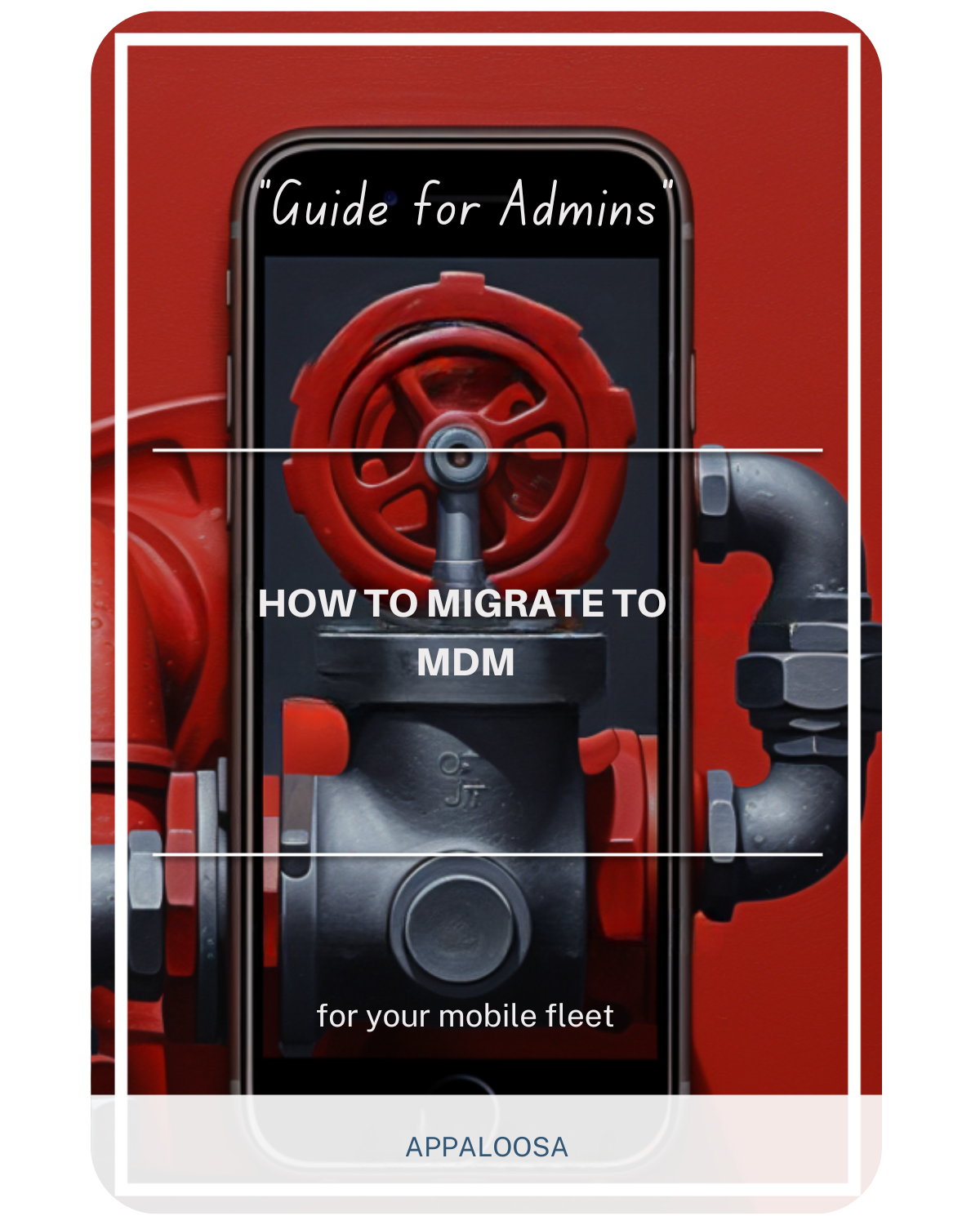Everything You Need to Know About Enterprise Mobile Applications

In today's digital landscape, mobile enterprise applications have become essential tools for organizations seeking to enhance productivity, improve communication, and streamline operations. These powerful solutions enable businesses to leverage mobile technology to achieve their business goals while providing exceptional user experiences for employees across all levels of the organization.
What Are Mobile Enterprise Applications?
Mobile enterprise applications are sophisticated software solutions designed specifically for organizational use, enabling employees to access company resources, collaborate with team members, and perform work-related tasks from their mobile devices.
Unlike consumer apps available on the app store, these applications are tailored to meet specific business requirements and often seamlessly integrate with existing enterprise solutions and legacy systems.
An enterprise mobile app platform serves as the foundation for these applications, providing a comprehensive framework that supports development, deployment, and management of mobile solutions across the organization.
These platforms ensure that apps app perform optimally while maintaining security standards and delivering consistent user interfaces across different devices.
Modern enterprise mobile application platform solutions apps include various functionalities such as content management system capabilities, workflow automation tools, and advanced analytics features.
This comprehensive approach enables organizations to create a unified mobile ecosystem that addresses multiple business needs through a single platform.
The Importance of Enterprise Mobile App Development
The shift toward mobile-first strategies has made enterprise mobile apps development a critical priority for organizations. With employees increasingly working remotely or in the field, having robust mobile solutions is no longer optional—it's essential for maintaining competitive advantage.
A well-designed mobile enterprise application platform enables organizations to:
- Provide real time data access to employees regardless of location
- Reduce time consuming manual processes through automation
- Enhance collaboration between office and field workers
- Improve decision-making with instant access to enterprise data
- Boost employee engagement and satisfaction
- Implement comprehensive management system features for better oversight
- Create scalable solutions that grow with the organization
Key Features of Successful Enterprise Mobile Applications

1. Intuitive UI/UX Design
Professional ui ux design is fundamental to the success of any enterprise mobile application.
The best solutions prioritize user-centered design principles, creating user interfaces that are both visually appealing and functionally efficient. This approach ensures high adoption rates and minimizes training requirements.
Enterprise apps include design elements that reflect corporate branding while maintaining usability standards that employees expect from modern applications.
2. Cross-Platform Compatibility
Modern enterprise mobile application development services often leverage frameworks like React Native to create applications that work seamlessly across iOS and Android devices.
This cross-platform approach ensures all employees can access critical business functions regardless of their preferred device, making it easier to determine the best mobile device for enterprise applications based on organizational needs rather than software limitations.
3. Robust Integration Capabilities
The ability to seamlessly integrate with existing enterprise solutions and legacy systems is crucial. A comprehensive mobile enterprise platform should support various integration methods, enabling smooth data flow between mobile applications and backend systems such as ERP, CRM, and HR platforms.
These integrations often apps include APIs, webhooks, and middleware solutions that ensure data consistency across all platforms.
4. Real-Time Communication Features
Instant messaging, push notifications, and chat functions enable teams to communicate effectively and share real time data. These features are particularly valuable for connecting field workers with office staff, ensuring everyone has access to the same information regardless of location.
Advanced management system capabilities allow administrators to monitor communication patterns and optimize information flow.
5. Offline Functionality
Since mobile workers may not always have reliable internet connectivity, the best enterprise mobile apps development includes offline capabilities. This allows employees to continue working productively and sync data once connectivity is restored.
The enterprise mobile application platform handles data synchronization intelligently, preventing conflicts and ensuring data integrity.
6. Advanced Security Measures
Security is paramount when dealing with enterprise data. Professional mobile app development company teams implement multiple layers of security, including:
- Single sign-on (SSO) authentication
- Data encryption at rest and in transit
- Remote wipe capabilities for lost or stolen devices
- Role-based access controls
- Secure APIs for data transmission
- Compliance with industry regulations (GDPR, HIPAA, etc.)
- Integrated management system for security monitoring and incident response
7. Analytics and Reporting
Modern enterprise apps include built-in analytics capabilities that provide insights into user behavior, application performance, and business metrics. These features help organizations make data-driven decisions and continuously improve their mobile solutions.
Types of Enterprise Mobile Applications
Employee Communication and Collaboration Apps
These mobile enterprise applications facilitate internal communication and teamwork. Features typically apps include instant messaging, video conferencing, file sharing, and project collaboration tools. The integrated management system allows administrators to create teams, manage permissions, and monitor usage patterns.
Field Service Management Apps
Designed for workers in the field, these applications provide access to work orders, customer information, and technical documentation. They often seamlessly integrate with central management system platforms to ensure real time data synchronization between field operations and headquarters.
Enterprise Resource Planning (ERP) Mobile Apps
Mobile ERP solutions extend the functionality of desktop systems to mobile devices, enabling employees to access critical business data and perform tasks such as inventory management, order processing, and financial reporting from anywhere.
Human Resources (HR) Mobile Apps
HR apps include features for time tracking, leave management, employee onboarding, and performance reviews. These applications streamline operations by automating routine HR tasks and providing self-service options for employees.
Benefits of Implementing Enterprise Mobile Solutions
Enhanced Productivity
By eliminating time consuming manual processes and providing instant access to information, mobile enterprise applications significantly boost productivity. Employees can complete tasks faster, make informed decisions quickly, and collaborate more effectively. The integrated management system provides visibility into productivity metrics and helps identify areas for improvement.
Improved User Experiences
Modern enterprise mobile application development services focus on creating exceptional user experiences that rival consumer applications. This attention to usability increases adoption rates and employee satisfaction while reducing training costs. Well-designed user interfaces make complex business processes accessible and intuitive.
Better Data Management
With real time data synchronization and centralized information management, organizations can ensure data consistency across all platforms. This eliminates duplicate entries, reduces errors, and provides accurate insights for decision-making. The management system component ensures data governance and compliance requirements are met.
Scalability and Flexibility
A robust enterprise mobile app platform provides the scalability needed to grow with your organization. Whether you're adding new users, implementing additional features, or expanding to new markets, the platform can adapt to changing requirements. Modern platforms apps include modular architectures that allow for easy customization and extension.
Cost Reduction
While the initial investment in enterprise mobile application platform development may be significant, the long-term cost savings are substantial. By automating processes, reducing errors, and improving efficiency, organizations can achieve significant ROI within months of implementation.
Choosing the Right Development Approach
When embarking on enterprise mobile apps development, organizations must choose between several development approaches:
Native Development
Creating separate applications for each platform provides optimal performance and access to device-specific features but requires more resources and maintenance. This approach is ideal when applications apps include complex features that require deep integration with device capabilities.
Cross-Platform Development
Using frameworks like React Native allows developers to create applications that work across multiple platforms from a single codebase, reducing development time and costs while maintaining good performance. This approach is particularly effective for organizations looking to streamline operations across diverse device ecosystems.
Progressive Web Apps (PWAs)
PWAs offer a web-based solution that provides app-like experiences without requiring installation from an app store, making them ideal for certain use cases where rapid deployment and easy updates are priorities.
Hybrid Development
Combining web technologies with native containers, hybrid apps offer a balance between development efficiency and native functionality. This approach works well when apps include both web-based content and native features.
Best Practices for Enterprise Mobile App Development
- Start with Clear Business Goals: Define specific objectives and KPIs before beginning development to ensure the application delivers measurable value.
- Prioritize User Research: Understand your employees' needs, workflows, and pain points to create solutions that truly enhance their work experience.
- Implement Iterative Development: Use agile methodologies to continuously improve the application based on user feedback and changing requirements.
- Focus on Performance: Ensure applications app perform well even on older devices and slower networks to maximize accessibility.
- Plan for Maintenance: Partner with a reliable mobile app development company that provides ongoing support and updates to keep your applications secure and functional.
- Invest in Training: Ensure successful adoption by providing comprehensive training programs that help employees understand how to leverage the full potential of the enterprise mobile application platform.
- Monitor and Optimize: Use built-in analytics and management system tools to continuously monitor application performance and user engagement, making improvements based on data-driven insights.
Future Trends in Enterprise Mobile Applications
As technology continues to evolve, mobile enterprise applications are incorporating advanced features such as artificial intelligence, augmented reality, and IoT integration. These innovations promise to further enhance user experiences and create new possibilities for achieving business goals.
Conclusion
Mobile enterprise applications represent a crucial investment in organizational efficiency and employee satisfaction. Businesses can create effective mobile solutions.
They can do this by using the right mobile application platform. Working with skilled mobile app developers is also important. These solutions boost productivity, improve teamwork, and help reach important business goals.
The key to success lies in choosing the right technology stack, prioritizing user experiences, and ensuring seamless integration with existing enterprise solutions. Whether you opt for React Native development or another approach, the focus should always be on creating applications that empower employees while protecting sensitive enterprise data.
As mobile technology continues to evolve, organizations that invest in robust enterprise mobile apps development today will be better positioned to adapt to future challenges and opportunities, ensuring they remain competitive in an increasingly mobile-first business landscape.
With the right management system in place and applications that apps include the features employees need, businesses can transform their operations and achieve lasting success in the digital age.
